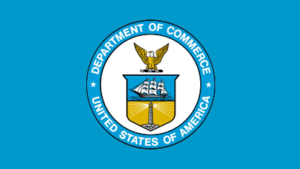Successful Veteran Housing Voucher Program May Face Budget Cuts in 2020
Oct 8, 2019
Northville, MI (Law Firm Newswire) October 8, 2019 – Veterans are particularly vulnerable to homelessness.
The Housing and Urban Development-Veterans Affairs Supportive Housing (HUD-VASH) program, which provides housing vouchers to veterans who are persistently at-risk of homelessness, seeks to change that. Research shows that the program is very successful in doing so, however the recently negotiated 2020 federal budget does not include any increase in funding for HUD-VASH.
HUD-VASH is a collaborative effort from the Department of Housing and Urban Development and the Department of Veterans Affairs. The first HUD-VASH vouchers were issued during the Clinton administration and the program was later expanded by George W. Bush. In the last eleven years, it has provided nearly 100,000 homeless veterans with permanent housing, support services, stability and a new lease on life.
“Unfortunately, homelessness disproportionately affects our veterans,” said James G. Fausone, lead attorney at Legal Help for Veterans, a law firm that specializes in serving veterans. “The HUD-VASH program has proven, measurable results and plenty of anecdotal evidence supporting its effectiveness. It is a shame that it could potentially fall victim to budget cuts and politics.”
HUD-VASH housing vouchers are distributed to veterans who qualify for VA health care and who are defined as homeless. There are income limits and other requirements to participate in the program. The program is administered by the VA, housing authorities and other relevant nonprofit organizations and social workers.
Chronically homeless veterans are also highly likely to suffer from physical, mental or substance abuse issues. The supportive services provided by the HUD-VASH program increase their overall health and quality of life. Ongoing case management ensures that these veterans continue to receive the help they need.
At the end of 2018, 85,509 veterans had active HUD-VASH vouchers and 78,234 veterans had a home thanks to the HUD-VASH voucher program.
Legal Help for Veterans is based in Northville, Michigan. James G. Fausone and his team handle VA disability claims exclusively. To contact Legal Help for Veterans, call 1-800-693-4800 or visit their website at http://legalhelpforveterans.com/.
Legal Help for Veterans, PLLC
41700 West Six Mile Road, Suite 101
Northville, MI 48168
Toll Free Phone: 800.693.4800
- Veterans Who Served After 9/11 More Likely to Benefit Financially From Service
Findings from a study conducted by Pew Research Center showed that combat veterans who served in the military after the September 11th terrorist attacks reported benefiting financially from their service more than those who served before 9/11. Sixty-eight percent of the post-9/11 veterans reported that being deployed in the military had a positive impact on […] - VA moves toward modernization with several updates
The Department of Veterans Affairs (VA) is implementing several highly anticipated changes to modernize its systems and processes and increase efficiency for the veterans it serves. The agency will soon have updated the rating schedule, modernized the appeals process, implemented an electronic health records system and streamlined the materiel acquisition process. Rating Schedule Update The […] - Veterans and depression
Depression is a mood disorder that is, at once, extremely serious and extremely common. For veterans, it is a serious problem. Some estimates state that around 14 percent of military service members experience depression after deployment. Spouses and other family members of soldiers are also at an increased risk of experiencing the condition. Depression is […] - Small study suggests military changes eating habits of female veterans
Researchers from the Department of Veterans Affairs (VA) have found that military service may affect the long-term eating habits of female service members. The small study showed that poor eating habits in the military carried on even after the women had transitioned back to civilian life. The women involved with the study noted three different […]




